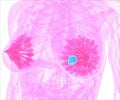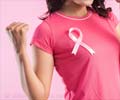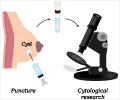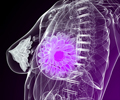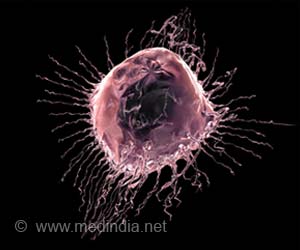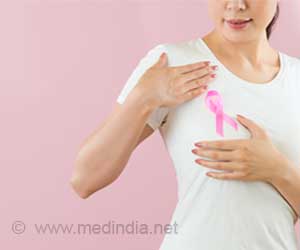Triple-negative breast cancer (TNBC) is an aggressive breast cancer lacking estrogen, progesterone, and HER2.

Tumor-derived arachidonic acid reprograms neutrophils to promote immune suppression and therapy resistance in triple-negative breast cancer
Go to source). Standard-of-care treatment for TNBC includes chemotherapy and immunotherapy. However, some initially responsive tumors still develop recurrences. Researchers studied mouse models and found that TNBC cells that survived treatment accumulated lipid droplets containing Omega-6 fatty acids. Single-cell RNA sequencing revealed that neutrophils, a type of white blood cell, near the tumor cells also accumulated these lipids.
‘#Lipid accumulation linked to triple-negative #breastcancer. Scientists exploring how this buildup contributes to tumor growth. #cancerresearch #fattyacids’





“We found the tumor cells give the lipid droplets to surrounding neutrophils. This shifted the function of the neutrophils from antitumor to tumor promotion,” said first author Dr. Liqun Yu, postdoctoral fellow in the Zhang lab at Baylor. Dual Role of Fatty Acids in Cancer Immunity
“The prevailing perspective in our field has focused on the role of fatty acid metabolism in regulating the immune response and therapeutic response. We found in this study that not only can fatty acids serve as an energy source, but they also are precursors of immunosuppressive signals the cancer cells can use to fight against our immune system,” said corresponding author Dr. Xiang H.-F. Zhang, director of the Lester and Sue Smith Breast Center and professor of molecular and cellular biology at Baylor.Researchers found they could reverse therapy resistance and the immunosuppressive microenvironment by disrupting lipid droplet formation. Blocking dietary intake of Omega-6 fatty acids also resensitized the tumors to chemotherapy and immunotherapy treatments.
“We can advise patients to consume a diet low in Omega-6 fatty acids, which is not significantly different from the general advice to lower red meat, fat and sodium intake. We also are exploring therapeutic options to block fatty acid accumulation and immunosuppressive signals between the cancer cells and the neutrophils,” said Zhang, William T. Butler, M.D., Endowed Chair for Distinguished Faculty and co-leader of the Breast Cancer Program at the Dan L Duncan Comprehensive Cancer Center at Baylor.
Reference:
- Tumor-derived arachidonic acid reprograms neutrophils to promote immune suppression and therapy resistance in triple-negative breast cancer - (https://www.sciencedirect.com/science/article/abs/pii/S1074761325000962)
Source-Eurekalert

